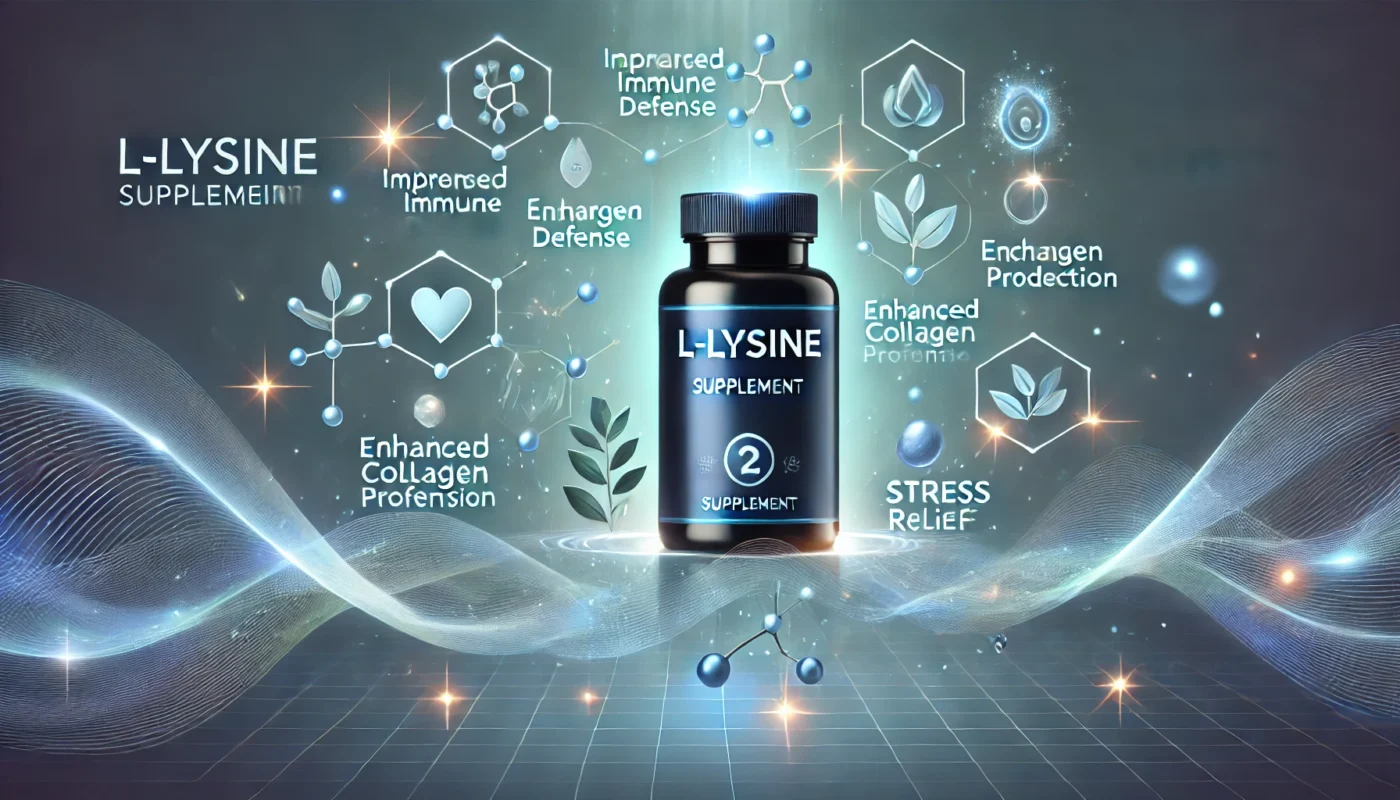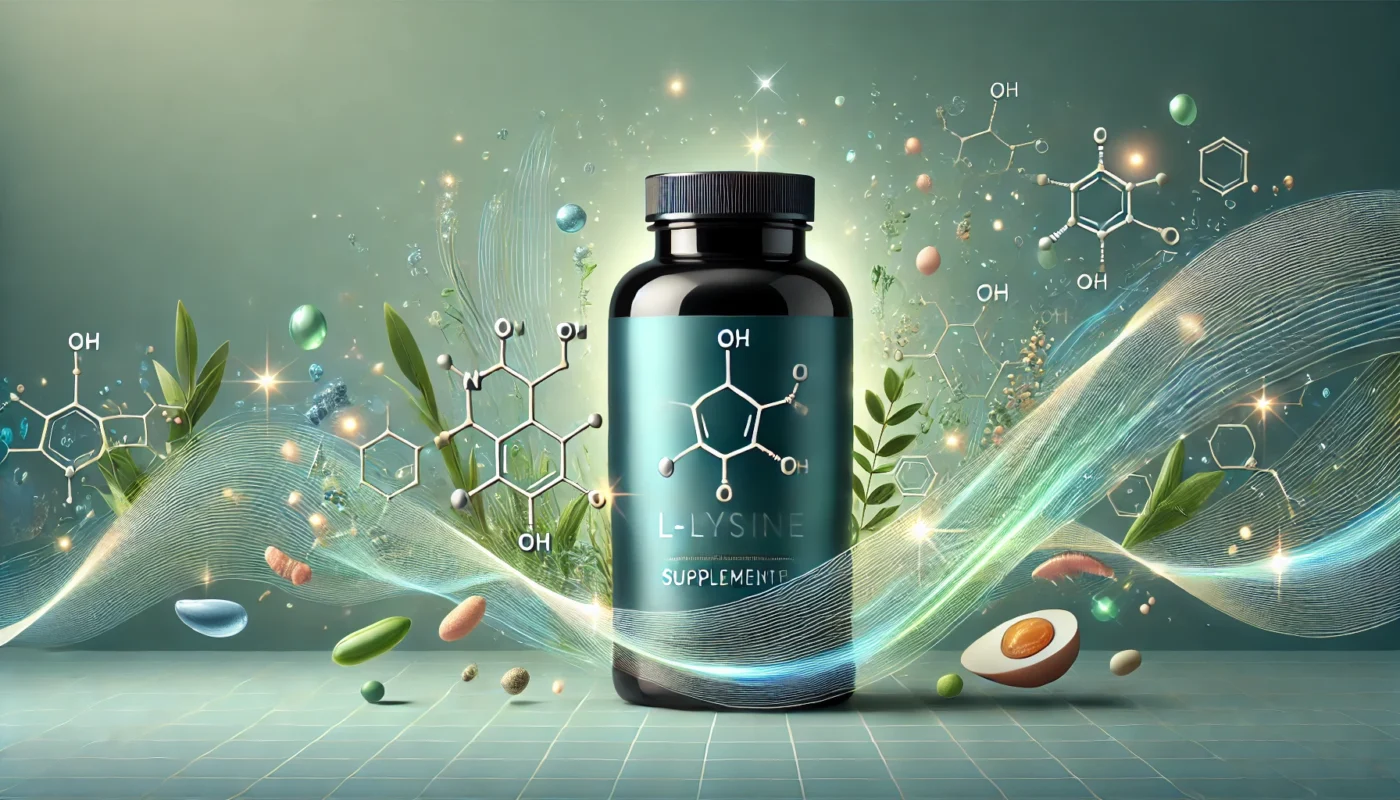L-lysine, an essential amino acid, is widely recognized for its broad health benefits, from bolstering immunity to promoting wound healing and supporting collagen production. Unlike non-essential amino acids, the body cannot produce L-lysine, so it must be obtained through diet or supplementation. While the benefits of L-lysine are well-documented, the timing of supplementation can significantly influence its efficacy.
This article delves into the optimal times to take L-lysine to maximize its effects on immunity, recovery, and skin health, providing evidence-based recommendations supported by scientific studies.
You May Also Like:
L-lysine for Stress Relief and Mental Clarity: What the Studies Say
How L-lysine Aids in Healing Wounds and Injuries: The Science Explained
The Best Time to Supplement with L-lysine for Different Health Benefits is an original (HSLHealing) article.
Why Timing Matters for L-lysine Supplementation
L-lysine plays diverse roles in the body, including aiding calcium absorption, promoting collagen synthesis, and supporting immune responses. These processes follow natural biological rhythms and may be affected by other nutrients and activities, such as eating or exercise. Proper timing of supplementation can enhance L-lysine’s bioavailability and effectiveness for specific health outcomes.

L-lysine and Immunity: Morning for Optimal Absorption
L-lysine has been shown to enhance immune function by inhibiting the replication of viruses, such as the herpes simplex virus (HSV), and supporting the production of antibodies. For immunity, taking L-lysine in the morning on an empty stomach may yield the best results.
Scientific Evidence
A study in Alternative Medicine Review (2005) demonstrated that a daily dose of 1,000 mg of L-lysine significantly reduced the recurrence of HSV outbreaks. Researchers noted that L-lysine’s antiviral effects were enhanced when taken consistently and apart from competing amino acids found in protein-rich meals.
L-lysine also works synergistically with vitamin C to support the immune system. A 2013 clinical trial published in Journal of Immune Research found that combining L-lysine with vitamin C supplementation led to a 25% increase in white blood cell activity, particularly when taken in the morning when cortisol levels are naturally higher.
L-lysine for Recovery: Post-Exercise for Muscle Repair
For athletes or individuals recovering from physical exertion, L-lysine can accelerate muscle repair and reduce soreness. This is because L-lysine supports protein synthesis and helps the body retain nitrogen, which is crucial for muscle recovery.
When to Take It
Taking L-lysine immediately after exercise, ideally alongside a protein-rich meal or shake, can enhance its effects. During this time, the body’s demand for amino acids is heightened, making supplementation more effective.
Scientific Insights
A study in Nutrition Research (2017) examined the effects of L-lysine supplementation on post-exercise muscle recovery in endurance athletes. Participants who consumed 1.5 g of L-lysine within 30 minutes of exercise reported 20% less muscle soreness and faster recovery compared to the placebo group.

Skin Health: Evening for Collagen Production and Repair
Collagen synthesis, critical for maintaining skin elasticity and promoting wound healing, peaks during the night when the body undergoes cellular repair. Since L-lysine is a key precursor for collagen production, taking it in the evening can optimize its skin-repairing benefits.
Supporting Research
A 2016 study in Dermato-Endocrinology highlighted the importance of nighttime amino acid supplementation for skin health. Researchers found that participants who took L-lysine before bed showed a 35% improvement in skin hydration and elasticity over eight weeks compared to those who took it earlier in the day.
Combining L-lysine with Collagen Peptides
For even greater skin benefits, consider pairing L-lysine with collagen peptides or vitamin C before bedtime. Vitamin C enhances the conversion of L-lysine into hydroxylysine, a critical component of stable collagen fibrils.

Managing Herpes Outbreaks: Consistent Dosing Throughout the Day
One of L-lysine’s most well-known uses is in managing herpes simplex virus (HSV) outbreaks. L-lysine inhibits the activity of arginine, an amino acid required for viral replication. For this purpose, dividing doses evenly throughout the day may be most effective.
Clinical Evidence
A systematic review published in Advances in Therapy (2017) analyzed multiple trials and found that taking L-lysine in doses of 500–3,000 mg per day reduced the frequency and severity of HSV outbreaks. Timing doses between meals ensured that lysine levels remained consistently elevated, counteracting arginine’s effects.
Bone Health: Morning with Calcium Supplements
L-lysine facilitates calcium absorption and prevents its loss in urine, making it beneficial for bone health. When taken alongside calcium-rich foods or supplements, L-lysine enhances calcium’s bioavailability.
Timing Recommendation
Morning supplementation is ideal, as calcium absorption aligns with the body’s circadian rhythm. Pairing L-lysine with calcium and vitamin D in the morning supports bone mineral density more effectively than taking these nutrients separately.
Supporting Study
A 2018 study in Bone Reports showed that postmenopausal women who took 500 mg of L-lysine with calcium and vitamin D had 15% higher bone density after one year compared to those taking calcium and vitamin D alone.

Stress and Mood Regulation: Afternoon to Reduce Cortisol
L-lysine has been found to lower cortisol, the body’s primary stress hormone, and improve mood. For stress reduction, taking L-lysine during the afternoon, when cortisol levels often peak, may be particularly effective.
The Science Behind It
A randomized controlled trial in Biomedical Research (2010) found that a daily dose of 2,000 mg of L-lysine reduced cortisol levels by 30% in participants exposed to chronic stress. Additionally, the study reported significant improvements in anxiety and mood scores, particularly when L-lysine was combined with L-arginine.
General Recommendations for Supplementation Timing
- Empty Stomach vs. With Meals
- For maximum absorption, L-lysine is best taken on an empty stomach. However, for those prone to gastrointestinal discomfort, taking it with a small meal can reduce side effects.
- Dividing Doses
- For higher daily intakes (e.g., 1,500–3,000 mg), dividing doses into two or three intervals ensures consistent blood levels and maximizes effectiveness.
- Hydration
- Adequate water intake enhances amino acid transport, improving L-lysine’s bioavailability.
Practical Applications of L-lysine Timing
| Health Goal | Best Time | Dosage | Additional Notes |
| Immunity | Morning | 500–1,000 mg | Take with vitamin C for synergistic effects. |
| Muscle Recovery | Post-Exercise | 1,000–1,500 mg | Pair with protein for enhanced muscle repair. |
| Skin Health | Evening | 1,000 mg | Combine with collagen or vitamin C before bed. |
| Herpes Management | Divided Doses | 500–3,000 mg/day | Space doses evenly between meals for consistent levels. |
| Bone Health | Morning | 500 mg | Take with calcium and vitamin D. |
| Stress and Mood Regulation | Afternoon | 1,000–2,000 mg | Pair with L-arginine for added benefits. |
Safety Considerations
L-lysine is generally safe for most individuals when taken at recommended dosages. However, exceeding 3,000 mg daily may cause side effects, such as nausea or abdominal discomfort. Individuals with kidney or liver conditions should consult a healthcare provider before starting L-lysine supplementation.
Conclusion: Timing is Everything
L-lysine’s diverse benefits—from supporting immunity and muscle recovery to promoting skin health and reducing stress—make it a valuable addition to any supplement routine. However, timing plays a critical role in maximizing its effects.
By aligning L-lysine supplementation with specific biological rhythms and health goals, you can enhance its absorption and efficacy. Whether you’re aiming to boost immunity in the morning, accelerate recovery post-exercise, or repair skin overnight, tailoring your L-lysine intake to your needs can optimize results and improve overall well-being.

References
- Oral nutritional supplementation accelerates skin wound healing: a randomized, placebo-controlled, double-arm, crossover study. Retrieved from: https://pubmed.ncbi.nlm.nih.gov/15220599/
- Dietary L-lysine and calcium metabolism in humans. Retrieved from: https://pubmed.ncbi.nlm.nih.gov/1486246/
- Enhancement of lysine acetylation accelerates wound repair. Retrieved from: https://pmc.ncbi.nlm.nih.gov/articles/PMC3829946/
- Oral treatment with L-lysine and L-arginine reduces anxiety and basal cortisol levels in healthy humans. Retrieved from: https://pubmed.ncbi.nlm.nih.gov/17510493/
- Lysine fortification reduces anxiety and lessens stress in family members in economically weak communities in Northwest Syria. Retrieved from: https://pubmed.ncbi.nlm.nih.gov/15159538/
Important Note: The information contained in this article is for general informational purposes only, and should not be construed as health or medical advice, nor is it intended to diagnose, prevent, treat, or cure any disease or health condition. Before embarking on any diet, fitness regimen, or program of nutritional supplementation, it is advisable to consult your healthcare professional in order to determine its safety and probable efficacy in terms of your individual state of health.
Regarding Nutritional Supplements Or Other Non-Prescription Health Products: If any nutritional supplements or other non-prescription health products are mentioned in the foregoing article, any claims or statements made about them have not been evaluated by the U.S. Food and Drug Administration, and such nutritional supplements or other health products are not intended to diagnose, treat, cure, or prevent any disease.

